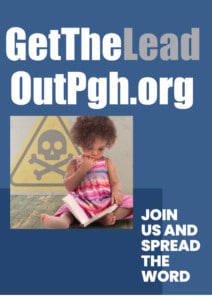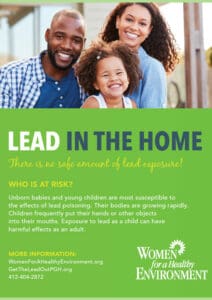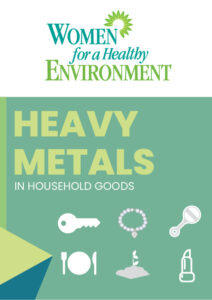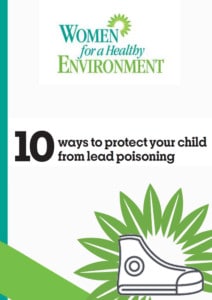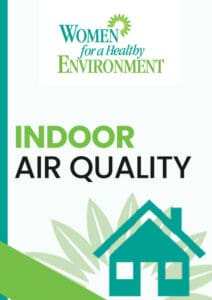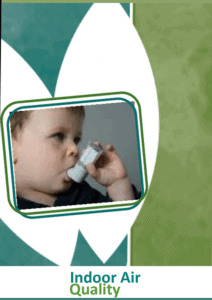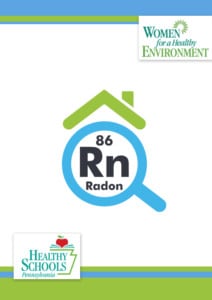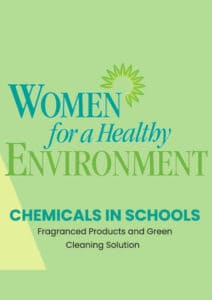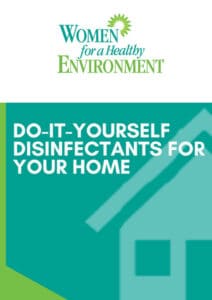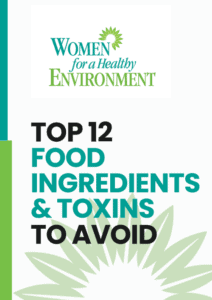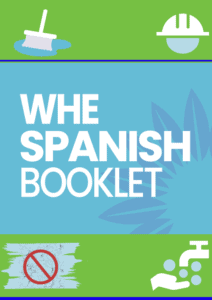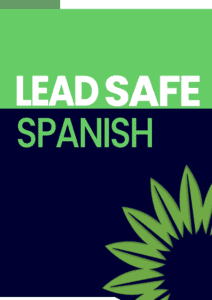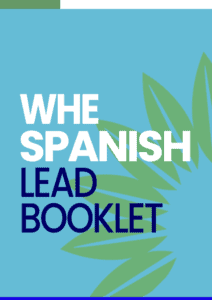The Pennsylvania Constitution (Article 1, Section 27) states that “people have a right to clean air, pure water, and to the preservation of the natural, scenic, historic and aesthetic values of the environment.” To preserve the integrity of our Pennsylvania state Constitution and ensure all peoples’ right to a healthy environment, Women for a Healthy Environment produces policy briefs, toolkits, and fact sheets to empower the public to advocate for policy change regarding environmental health. As the discipline of environmental health evolves, WHE continues to conduct research with its coalitions to produce the most up-to-date informational materials and corresponding local, state and federal policy recommendations.
Health Policy Briefs
WHE’s Policy Briefs examine key environmental health issues and present opportunities for local, state, and federal policy change that would create healthier homes, schools, and early learning centers. Each brief provides an overview of the environmental exposure of focus, its impact on health, current regulations, and local, state and federal policy recommendations.
Coal tar and coal tar pitch are byproducts of coke, a solid fuel made by heating coal in the absence of air, and are commonly found in pavement sealants. A federal ban on coal tar and coal tar pitch in any commercial product would be the most health protective and efficient policy solution. Alternatively, states and localities can ban the sale or use of cosmetics and industrial products containing coal tar and coal tar pitch – read on to learn more.
Consumer Products Health Policy Brief
The Safe Cosmetics and Personal Care Products Act was introduced in the 2019/2020 federal session to help protect consumer, worker, and environmental health from toxic chemicals in our every day products. While Congress did not pass it, it serves as a model for future proposals in coming years in that it strove to phase out ingredients linked to severe health effects, require full ingredient disclosure, provide funding to the FDA to expand its testing capacity, provide adequate oversight and testing, and put in place protections for salon workers’ health. Thus, WHE recommends inter-level policy initiative coordination among local, state and federal actors to address the toxic substances present in our every day items – read on to learn more.
Glyphosate Health Policy Brief
Glyphosate, a chemical commonly used in pesticides like Round Up, is a probable human carcinogen; both municipalities as well as state and federal government actors should consider banning the use of herbicides containing glyphosate on publicly owned land – read on to learn more.
Household Mold Health Policy Brief
Household mold can threaten your health in a variety of ways, and some types have neurotoxic, reproductive, and carcinogenic properties. Municipal and state policymakers can address this issue through updating building codes and evaluation systems, and federal policymakers can create greater enforcement measures for such programs in states – read on to learn more.
Per-and polyfluoroalkyl substances (PFAS) are class of manmade chemicals that includes PFOA, PFOS, GenX, and many other chemicals. These chemicals are housed in items like non-stick cookware, weatherproof clothing, beauty products, and more; most detrimentally, AFFF – another type of PFAS – is present in firefighting gear and foam. WHE recommends most immediately adopting a take back program in Pennsylvania like that of other states, coupled with a variety of local and federal initiatives – read on to learn more.
PlanCon Funding Health Policy Brief
PlanCon, an acroynm for Planning and Construction Workbook, was an $8.4 billion fund encouraging schools and other organizations to build new and tear down old environmentally hazardous structures that was placed on a moratorium in Pennsylvania. Since, we’ve seen schools in disrepair due to underinvestment from the state, and thus WHE recommends re-allocating and continuing to budget for ample public funding being devoted to such a program.
Radon is a colorless, odorless, naturally occurring radioactive gas that can cause lung cancer after long periods of indoor exposure. There are diverse opportunities for policy change from both county policy actors and state and federal policy actors can help limit radon exposure – read on to learn more.



